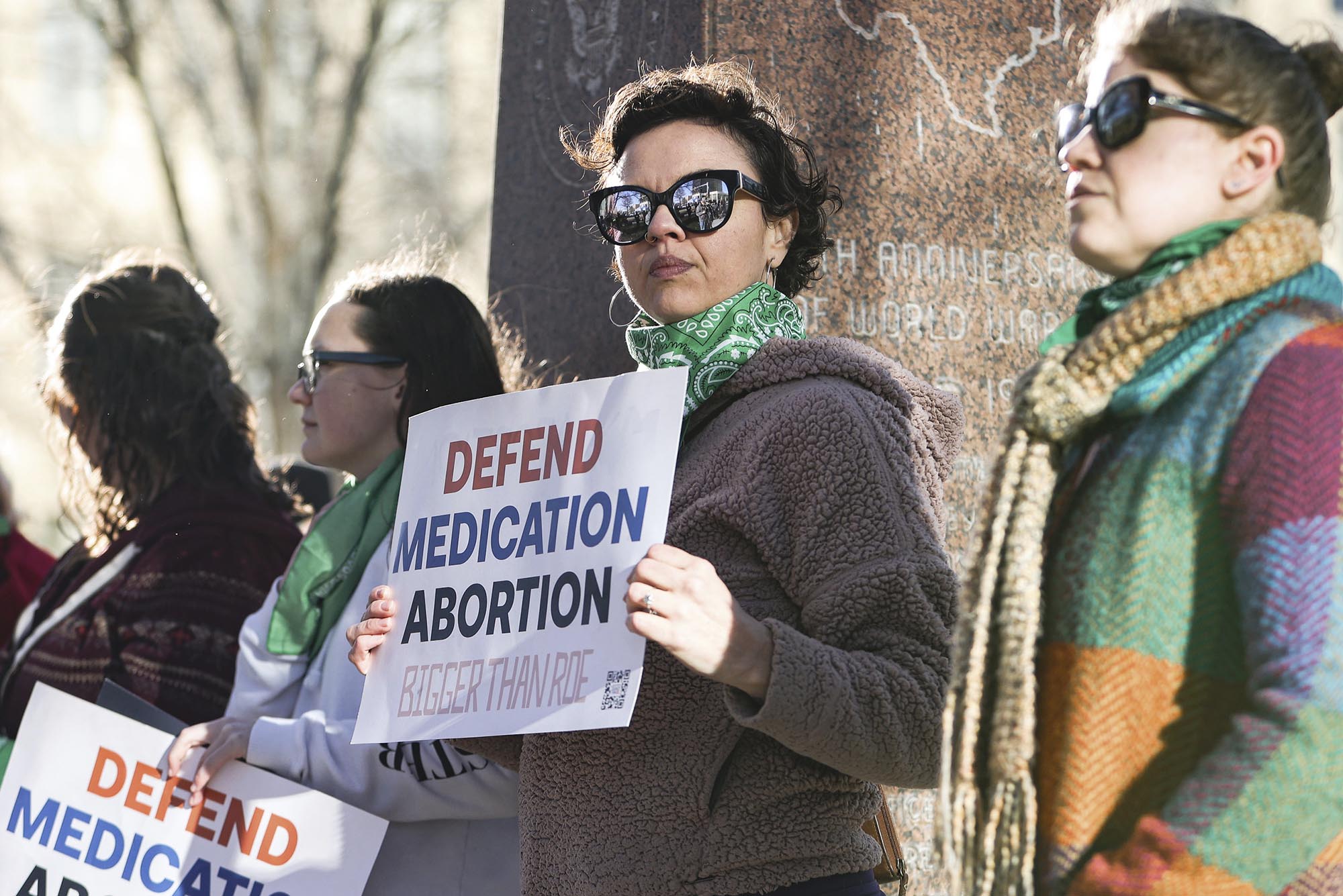Supreme Court Upholds FDA Approval of Mifepristone: What’s Next?

On Friday, the high court granted a request from the Department of Justice to leave in place the FDA’s 23-year-old approval of mifepristone, the first of a two-drug protocol for medical abortions. This means that, at least for now, the pill will remain widely available. AP Photo/David Erickson
Supreme Court Upholds FDA Approval of Mifepristone: What’s Next?
Abortion drug will remain widely available for now, as a case contesting it gets “fast-tracked” through the appeals courts, LAW professor says
The abortion pill mifepristone will continue to be available nationwide, the US Supreme Court said on Friday, while challenges to the US Food and Drug Administration’s approval of the medication continue to work through the court system.
The high court granted a request from the Department of Justice to leave in place the FDA’s 23-year-old approval of mifepristone, the first of a two-drug protocol for medical abortions. This means that, at least for now, the pill will remain widely available.
The justices’ decision leaves the case in the hands of the US Court of Appeals for the Fifth Circuit, which will hear oral arguments on May 17. BU Today spoke with Nicole Huberfeld, Edward R. Utley Professor of Health Law, Bioethics & Human Rights at the BU School of Public Health and a law professor at the School of Law, about the Supreme Court’s decision, and what comes next.
Q&A
with Nicole Huberfeld
BU Today: Are you surprised by the decision?
Huberfeld: I am not surprised, but I am relieved. The trial court’s decision, the first to undo an FDA determination that a drug is safe and effective, was extraordinarily broad, and it threatened the FDA’s authority, the stability of pharmaceutical approval processes and domestic and global markets, and national access to the most common form of abortion.
The Fifth Circuit (appellate court) held that the challengers did not have “standing” to contest the original FDA decision, but they could challenge more recent streamlining of the drug’s protocols as well as mailing of mifepristone.
Pre-Dobbs, I would have predicted that the case has moved too fast and is trying to do too much without the issues being fully litigated, and that’s usually the kind of case that demands a stay before national harm occurs. Nevertheless, the Dobbs decision (overturning Roe and Casey) was so immoderate that predicting the Supreme Court’s actions has become harder to do.
BU Today: Justices Alito and Thomas dissented in this decision, and Alito included a brief explanation. What do you make of it?
The dissent has the same rancorous tone as the majority [opinion] Justice Alito authored in Dobbs. It signals refusal to recognize the wide variety of harms that would occur without a stay, much like the court’s refusal to recognize the immediate harms that would occur by “return[ing] the issue of abortion to people’s elected representatives,” with trigger laws ready to outlaw access to abortion in many states.
In this FDA v. Alliance for Hippocratic Medicine case, Danco [Laboratories] and GenBioPro [both manufacturers of mifepristone] would have to make a very hard decision: keep selling these drugs when they have been declared improperly approved, and hope the FDA does not take enforcement action against them, or remove the drugs from the US market and suffer substantial financial harms as well as cause predictable and significant health harms to the people who rely on this relatively inexpensive form of care. These are irreparable harms, and the court has recognized repeatedly that these types of harms (to finances and to health) can be the basis for intervening. His dissent also seems weirdly thin on legal analysis.
BU Today: What will you be watching for as this case moves forward?
In my view, the stakes are high for a number of reasons. These complex, technical questions are hard to understand for most people, but have big impacts on the health of people of reproductive age, and it worries me that courts are being asked to decide this type of case so often in recent years. The Fifth Circuit appeal was fast-tracked, with oral argument scheduled to occur in 26 days, so we will soon learn whether federal courts buy the novel and bizarre challenge to FDA authority. We also will learn whether they agree that the Comstock Act, which Congress enacted before women had a right to vote—or were considered fully human for purposes of owning property and other basic civil rights—can forbid mailing of lawful medicines. In the meantime, states such as Massachusetts are “stockpiling” mifepristone, which will protect patients in safe haven states but may have the unintended effect of making it less available elsewhere.

Comments & Discussion
Boston University moderates comments to facilitate an informed, substantive, civil conversation. Abusive, profane, self-promotional, misleading, incoherent or off-topic comments will be rejected. Moderators are staffed during regular business hours (EST) and can only accept comments written in English. Statistics or facts must include a citation or a link to the citation.